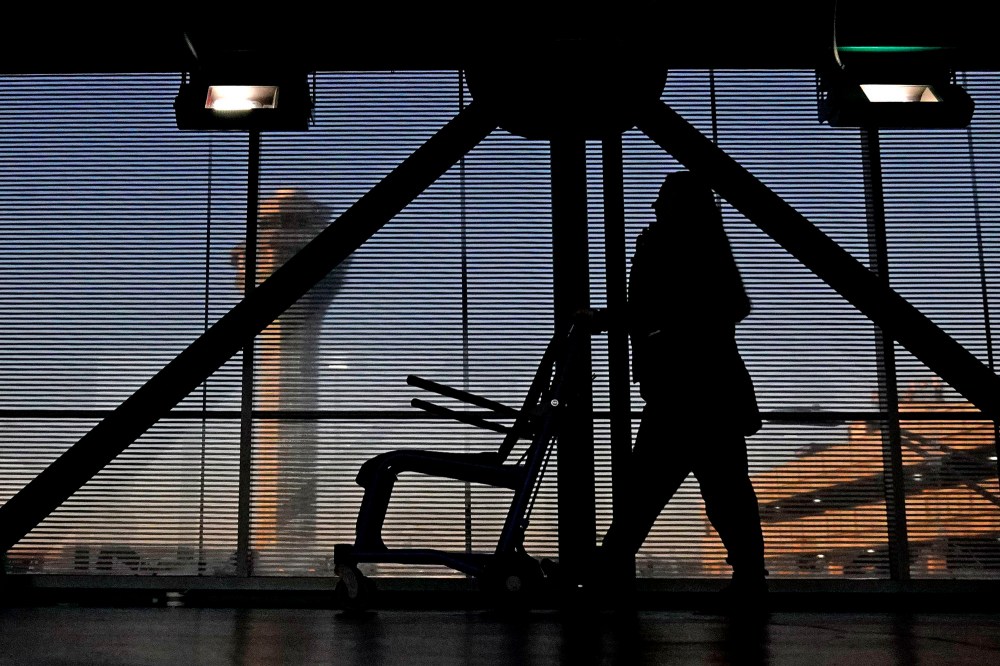The U.S. Department of Transportation fined American Airlines a staggering $50 million Wednesday over allegations that the airline had mistreated disabled passengers and sometimes injuring them in the process. Transportation Secretary Pete Buttigieg said in a conference call with reporters Wednesday that, from 2019 to 2023, American Airlines “provided unsafe and undignified physical assistance to passengers on a number of occasions that, at times, resulted in injuries.” Buttigieg said the $50 million fine is 25 times larger than the department has ever imposed for disability-related violations.
Buttigieg said the $50 million fine is 25 times larger than the department has ever imposed for disability-related violations.
American Airlines said in a statement that it had reached a settlement with the Transportation Department, that its rate of mishandling wheelchairs and scooters has dropped 20% since 2022, that it has “invested more than $175 million in services, infrastructure, training and new technology,” and that “American has a long-standing commitment to serving passengers with disabilities.”
“We have other active investigations into a number of U.S. airlines for similar violations,” Buttigieg said, but he said that “American Airlines appear to be one of the worst offenders.”
It is unfortunate that the Transportation Department had to place such a monumental fine against an iconic air carrier to ensure that our basic rights are respected and protected. Although we are grateful for Buttigieg’s support, money won’t fix the indignity of being mistreated while traveling as a wheelchair user. But it sends a message to the industry that change must come.
Today, our department is holding American Airlines accountable with a $50 million fine for repeatedly violating the rights of wheelchair users.
— U.S. Department of Transportation (@USDOT) October 23, 2024
Everyone has the right to travel with dignity and respect. pic.twitter.com/nfNWA1G5Hh
Regardless of the airline we choose, every time we wheelchair users fly, we think, “What will we face this time?” I fly a lot, and only about 10% to 15% of the time has everything gone completely smoothly with my chair, the way they transferred me, the wait times, and the aisle chair being in good condition.
A large part of the problem is that the federal law protecting our air travel rights is the Air Carrier Access Act (ACAA), not the Americans with Disabilities Act. The language to protect passengers with disabilities is not as strong as the language in the ADA, and the ACAA regulations have weak training standards.
Decades ago, airlines chose not to design their aircraft cabins so that we could roll on board and stay in our wheelchairs. If they had designed the planes that way, then we would have to be transferred only once if we wanted a passenger seat. Instead, we are forced to transfer seats twice. First, we are transferred into an aisle chair, so named because it can fit down the narrow width of the aircraft’s aisle. Service workers push us onboard, down the aisle, and then they transfer us from the aisle chair into a passenger seat.
Decades ago, airlines chose not to design their aircraft cabins so that we could roll on board and stay in our wheelchairs.
A lot can go wrong with all those transfers. And boy, does it go wrong — really wrong and far too often. I know this firsthand because of what happened to me on a different airline in 2022.
Two agents are supposed to help each wheelchair user transfer. But on a flight to Hartsfield-Jackson Atlanta airport, only one agent could be found to lift me from my wheelchair. That one person could not do it alone. I’m a big guy, and I was dropped to the floor like a sack of potatoes. Eventually, another passenger, a complete stranger, helped lift me. I was lucky he helped. Many wheelchair users, when dropped while being transferred into or out of an aisle chair, are not so lucky. I could have easily hit my head or broken my leg. That, and a lot worse, has happened to so many of my fellow wheelchair users.
On top of all this, to get to the transportation secretary’s point, it is an undignified experience. It is a humiliating to be dropped on the floor as other people stare.











